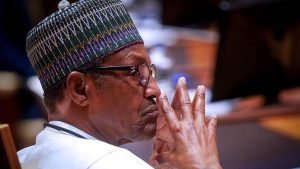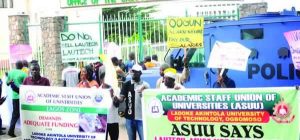
Economies across the world continue to share one singular feature that will remain constant: the human agency. Most economists will not dispute the pivotal and strategic place of human capital in defining labour as a means of production in any economic context. Regardless of whether it is an essentially capitalist, socialist or laissez faire economy, the human agent is critical to defining the power of the labour force. Writing for The Balance in a 2020 article, Kimberly Amadeo, for instance, describes a ‘labour force’ as statistically inclusive of the number of people in employment as well as those who are in search of work at a particular time.
Nigeria as a nation seemed to have got a lot right at the time of her political Independence, thanks to the colonialists who had provided the enabling structures and infrastructure to make practicable the preconditions for a modern economic take-off. The existence of a nation-wide railway service meant that a lot of Nigerians could transport themselves to various destinations for economic purposes, and goods could also be moved easily from place to place. The Nigerian Railway Corporation was at the same time a viable employer of able men and women in both skilled and semi-skilled cadres. Since the economy of Nigeria was predominantly agrarian in nature, this had also meant that the cocoa farmers and the government of the Western Region, the oil-palm farmers and the government of the then Eastern Region and the groundnut farmers and the government of the Northern Region had adequate transportation for the movement of their respective agricultural produces across the country and to the ports for viable export. The creation of a value chain which saw the employment of thousands of produce officers and other key functionaries had raised the economic tempo of the employment market in Nigeria in the decade of the 1960s.
About this period, many companies already existed to keep the economy running, with hundreds of thousands of Nigerians in their employ. Some of these included the UAC, the AG Leventis Group, the Lever Brothers Group, among others. Indeed, the Nigeria Stock Exchange has to date retained many of these in their book of listed companies. Going down the memory lane, the United Africa Company of Nigeria (UACN) was a leading contributor of employment in the real estate, food and beverage and later paint and logistics sectors of the Nigerian economy. Similarly, the Lever Brothers (West Africa) Limited, which would after decades of its operation in Nigeria change to Unilever Plc., had started out as primary traders in soap and, as a soap company had proven to be highly valuable to Nigeria’s employment sector. Its cumulative success occasioned the company’s morphing and expansion into a soap and food production company, which still remains active in the Nigerian economy today.
Partly like the UAC and like the Lever Brothers group, the AG Leventis has a long history of impacting the Nigerian economy and its labour force, greatly and positively, as traders in power and gas products, food products which included pastry and bakery products. It would later diversify into property and real estate, hotel services, auto-vehicle trading and servicing, as well as supplies of computer accessories. The economy was charged at an up-tempo tide. The Lagos-Ibadan express road was scheduled for construction when there came the need for more roads to pave the way for ease of movement of people and goods across the country – and the oil boom of the 1970s could support these. Graduates from Nigeria’s universities, polytechnics and other post-secondary institutions had jobs readily waiting for them. In 1984, a fresh graduate settling down into a new job with good payment structure could afford the purchase of a brand-new Passat car for only N11,000.
The decade of the 1980s, better known as the IMF years, had marked a significant watershed in the trajectory of Nigeria’s political experience. This had a ripple effect on the economy and employment sections of the country. Like many African, Caribbean and South American nations that had subscribe to loan arrangements offered by the International Monetary Fund, Nigeria began its national and economic safari into the orbit of irrecoverable economic losses. The gains made in the previous decades would soon be eroded through weak currency and exchange rate systems. Almost for the first time, riots and protests would hit the streets of the country for not any other reason than the rate of economic downturn and unemployment.
According to one archival source, issues of poor wages and increasing unemployment had crystallised into various labour actions. In May of 1991, employees of the Nigeria Railway would also stage a striking protest that lasted into ten days owing to issues of delayed compensations. Frustrated by constantly unpaid salaries and anticipated layoffs, railway employees in Lagos also went rioting in July of the same year. In August, employees at the port services also downed tools, and by October, Nigeria Airways workers went on a strike. This series of labour actions had not been helped by the equally bad situation that many traders in the country had found themselves. Earlier in February of 1991, the police had demolished a significant number of trading shops and stalls in the central market district of Lagos, which were considered ‘illegal’. These demolitions had deepened the negative impact of social and economic tensions in certain parts of the country. Masses of angry employed and unemployed people fought the police in the streets to vent the pains of their economic frustrations. Even when the global oil price went up briefly during the Gulf Crisis and Nigeria’s earnings had increased by $2.3 billion, this was not enough to assuage the effects of the country’s continued high debt profile and fiscal expansion.
From the 1990s to the present time, the Nigerian economy and its labour sector have remained in doldrums. According to figures released by statists.com, employment rate in Nigeria for 2019 stood at 8.1%, a worse scenario compared to a figure of 7.06% for 2016. A more recent statistical breakdown by Nigeria’s own National Bureau of Statistics indicates that the rate of unemployment in Nigeria had jumped to 27.1% as at the second quarter of 2020. The direct implication of this for the Nigerian is that about 21,764,614 (21.7 million) Nigerians are currently unemployed. Equally unsavoury is the figure which put the combination of Nigeria’s unemployment and underemployment rates at 55.7%, which implies that underemployment in the country stands at 28.6% as at the second quarter of 2020. Also, consistent with analysis by Nairametrics, a Nigeria-focused online statistical platform, Nigeria’s unemployment rate which stood at 23.1% at the end of the third quarter of 2018 has now increased by a 4-percent negative margin between that year and the second quarter of 2020.
While the number of persons in the economically active or working-age population, usually between ages 15 and 64 is put at 116,871,186 during the reference period of the survey, the number of persons in the labour force (within the same age brackets) is estimated at 80,291,894. This numerical information provides an appreciable sense of the critical nature of the national unemployment crisis in Nigeria. Hordes of Nigerian youths today fail to secure the kinds of jobs they are in pursuit of, either in the fields of their cognate trainings or in other areas where they consider their qualifications relevant in the Nigerian labour market.
At the same time, many who have turned in the direction of government jobs soon discovered a different scenario playing out with government jobs. Where the number of applicants for government jobs did not massively overshadow the number of advertised job openings, the factor of internal employment racketeering had foreclosed the chances of many brilliant and qualified job-seekers who could have secured such advertised jobs if the processes were to favour the principle of meritocracy.
The Nigeria Immigration Service made history not only for making up to about N520 million from about a 6.5 million number of job-seekers, according to media sources, but also for reportedly having recorded a tragedy of 23 deaths during its recruitment exercise of March 2014. The litigation process which saw the ex-Interior Minister, Abba Moro, sued over this tragedy and other associated corruption matters, is yet to reach a final conclusion as of September 2020. This illustration only exemplifies the typical scenarios that ensue with the advertisement and recruitment exercises associated with government employment and the civil service at large. Job recruitments in the Nigeria Customs Service, the Nigeria Police, and many other public service contexts are not any different.
With these setups, it becomes far from cloudy, the fact that the Nigerian labour market is currently like a vague puzzle, with the player lost in the mesh of confusion to unravel their situation. The employment context can be likened to a blind alley which has its labyrinths leading the navigator through clueless paths. The effectual absence of jobs in contemporary Nigerian labour sector has seen graduates of Theatre Arts pursuing livelihoods in agriculture, while the banking sector now houses a huge number of trained engineers, graduates in the fields of Medicine, Psychology, English and Yoruba. Failing to secure the jobs of their dreams, some graduates across various fields have become founders of phoney businesses under different names, rather than being gainfully employed in their respective areas of professional qualification.
Indeed, the situation is so decadent and degenerate that many companies in the top brackets are wary of employing graduates of Nigerian universities. The adducible reasons include having a long history with Nigerian youths in the work space who could not live up to the demands and expectations of the jobs in questions. But the situation is, to a large extent, far away from these provisions. Many oil companies and multinationals do not think the educational sector of Nigeria offers them the quality of new entrants that befits their international standing. Certainly, the inadequacies in the quality of the education of many Nigerian youths contribute to their failure to secure the jobs of their desires. Many employees in this section of the Nigerian economy have often been employed based on nepotistic considerations, just as with a lot of government jobs.
Read Also: Plans to Review Nigeria’s Labour Laws Underway- Minister
The Nigerian Constitution provides that ‘The State shall direct its policy towards ensuring that (a) all citizens, without discrimination on any group whatsoever, have the opportunity for securing adequate means of livelihood as well as adequate opportunity to secure suitable employment; b) conditions of work are just and humane, and that there are adequate facilities for leisure and for social, religious and cultural life; (c) the health, safety and welfare of all persons in employment are safeguarded and not endangered or abused.’ among other things. But the practicability of these provisions remains to be appreciated in all its ramifications.
The turns of political and economic events in Nigeria have created perennial gaps in the Nigerian labour force as witnessed in the down-turn of economic productivity and unemployment statistics. Most comparative examination of Nigeria’s employment rates agree on the one fact that the nation’s labour market has been reshaped by the years of bad economic policies and incoherent governmental decisions. The continuous metamorphosis of once economically active and viable factories into religious centres is symptomatic of the country’s failed industrialisation, which also signposts a national unemployment crisis.
Governments over the years have not shown demonstrable understanding of all the important economic variables and principles required to bring a developing country into a better place through focused industrialisation that would facilitate socioeconomic advancement. The critical truth in all of this cannot be looked away from: Nigeria remains in the hands of her citizens who must do all that is possible within the context of purposeful nation-building to rejig the labour situation.
Abiodun Bello

